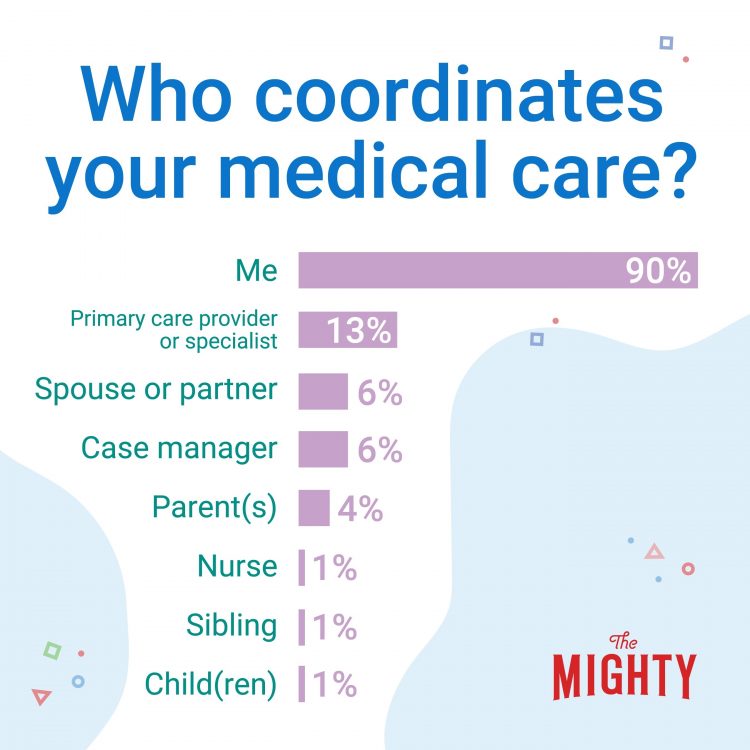Imagine you go to a restaurant because you’re really craving a burger. You sit down at the table only to discover that as the customer, you’re responsible for not only the finished product of the meal, but also the sourcing of the ingredients from individual suppliers. You spend all day making calls while your hunger – the main reason you stopped by the restaurant – crescendos. Eventually, each piece of the burger puzzle arrives. You assemble, you eat, you need a nap. The entire experience makes you question whether you ever want a burger again. Did you get what you came for?
This, my friends, is a fraction of what it’s like to be a chronically ill patient.
Something we don’t talk about enough in the world of chronic health care management is the seemingly benign question: Who coordinates your care? I asked our Mighty community this question and not surprisingly – since it matches my personal experience – 90% of those surveyed are the sole coordinator.
So what exactly does care coordination look like? It means making (and attending) appointments, sifting through (and paying) medical bills, inquiring (and sending) records between providers, as well as chasing down insurance approvals.

If reading those statistics lights a fire within you, good. That means I’m doing my job so far. Chronically ill patients are suspended in a broken system. The current health care set-up asks and straight-up requires the patients – the ones in need of answers and you know, care – to identify the missing pieces of their health, track them down, and then cobble the shards back together. Sometimes this quest is completed in agonizing pain, other times in the face of insurmountable physical or emotional trauma. And every step of the way, patients are often gaslit and made to believe their symptoms are “in their head.”
In a world where we can provide wedding coordinators, travel agents, general contractors, and funeral planning teams, we should be more than capable of improving the lives of people with chronic illness. Because you know what happens when we make patients like me do it ourselves? We get subpar treatment. We chase our symptoms and have to prioritize reactive care over proactive care. Each limb of our bodies is managed by a different specialist and we’re made to feel like science experiments. And sometimes, because of the neon red tape, we don’t make it out alive.
We have set the bar for care coordination incredibly low. We have a long way to go. We’re not asking for the sky, we’re asking for a better quality of life and adequate support (and OK, maybe a burger).
Getty image by Chiut Iamnoy.

